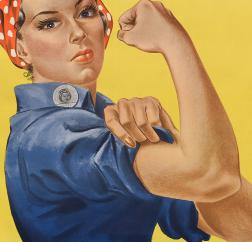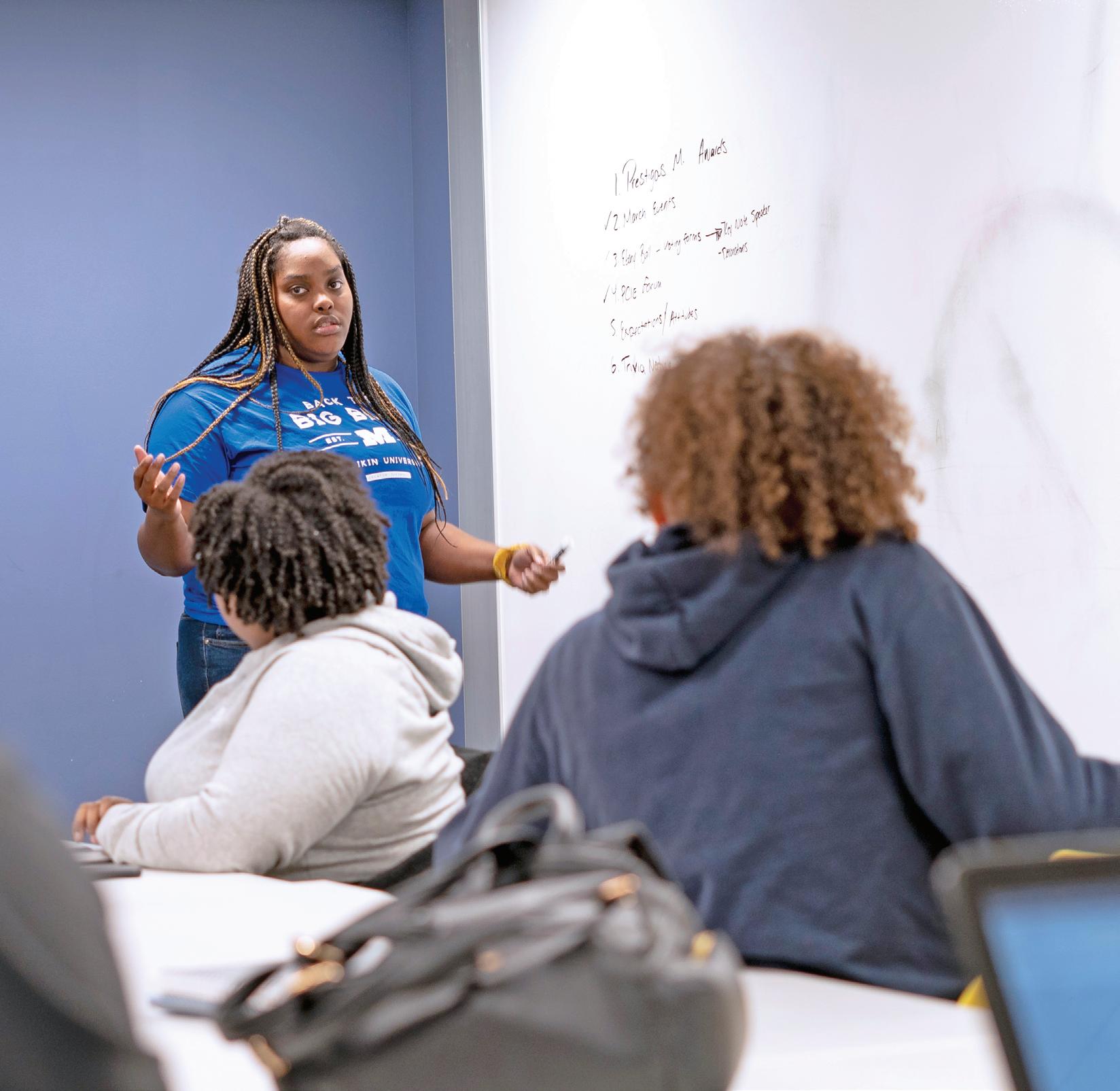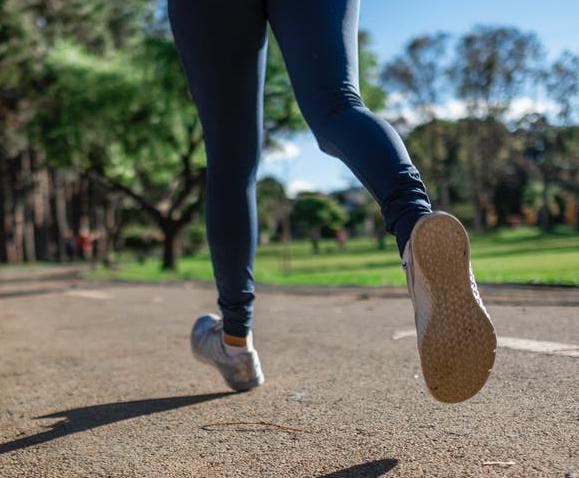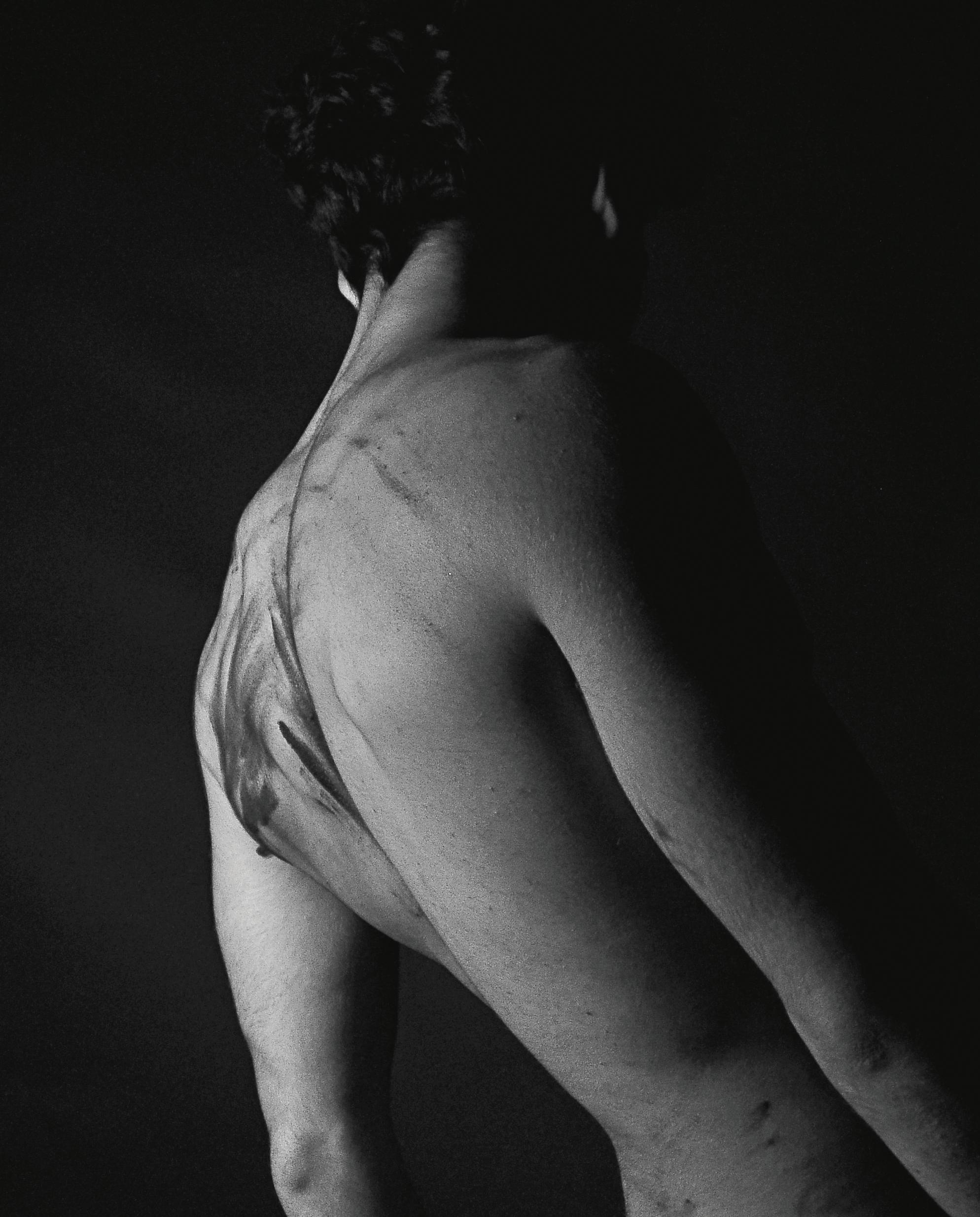
7 minute read
I Have Been Underestimated
IUnderestimated Have Been
Female athletes at Millikin University share their stories of stigma and strength.
Advertisement
By Anna Gambol
The impact of ridicule does not always reveal itself explicitly, but it certainly causes ripples. I interviewed female athletes at Millikin University and asked them about the extent to which negative interactions throughout their athletic careers have shaped them. The effects of disrespect on female athletes is astonishing. Lexy wore pants more, Sarah shattered, and Stephanie grew empowered.
Team members and coaches subject women to criticism often. Outsiders show disapproval because of the way women look or simply because they are female. False stereotypes take their toll on some women’s mental health and even lead them to lose their initial passion for the sport they love. Fortunately, many female athletes rise above the prejudice they absorb from coaches, teammates, parents, and others and become more positive women and athletes as a result. I asked past and present female athletes the same list of questions, and they gave brilliant, eye-opening, and insightful answers.
Lexy Monnet, Retired Women’s Track & Field and Cross Country
Lexy is a junior English education major from Effingham, Illinois. She has ran track for seven years and has participated in cross country for five years. She likes her sports because of the family atmosphere and the ability to improve herself and push others to accomplish their goals.
Question: “When was a time someone shamed you because of the way you looked, and how did it affect you?”
Answer: “When I was in high school and began strength training for running, my calves and biceps were getting a lot bigger, and people made fun of how masculine they looked. I didn’t change anything about myself—I just wore pants a lot more.”
Sarah Bingenheimer, Women’s Volleyball
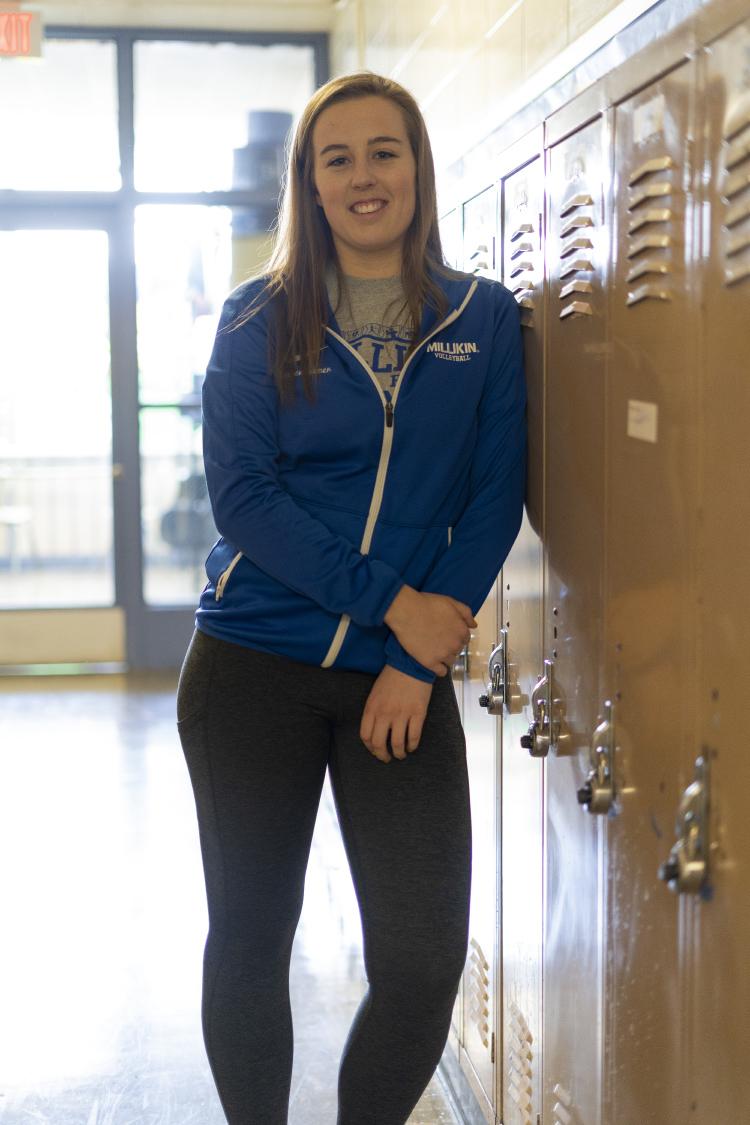
Sarah is a junior majoring in elementary education. Her hometown is Springfield, Illinois, and she has played volleyball since fourth grade. She loves her sport because of the competition, opportunity for activity, and the time she spends with teammates she adores.
Question: “When was a time someone shamed you because of the way you looked, and how did it affect you?”
Answer: “In middle school, according to my so-called friends, I was fat and ugly . . . but I wasn’t. At the time, this almost broke me. I was very insecure, and my self-esteem was very low.”
Shae Giovanni, Women’s
Soccer
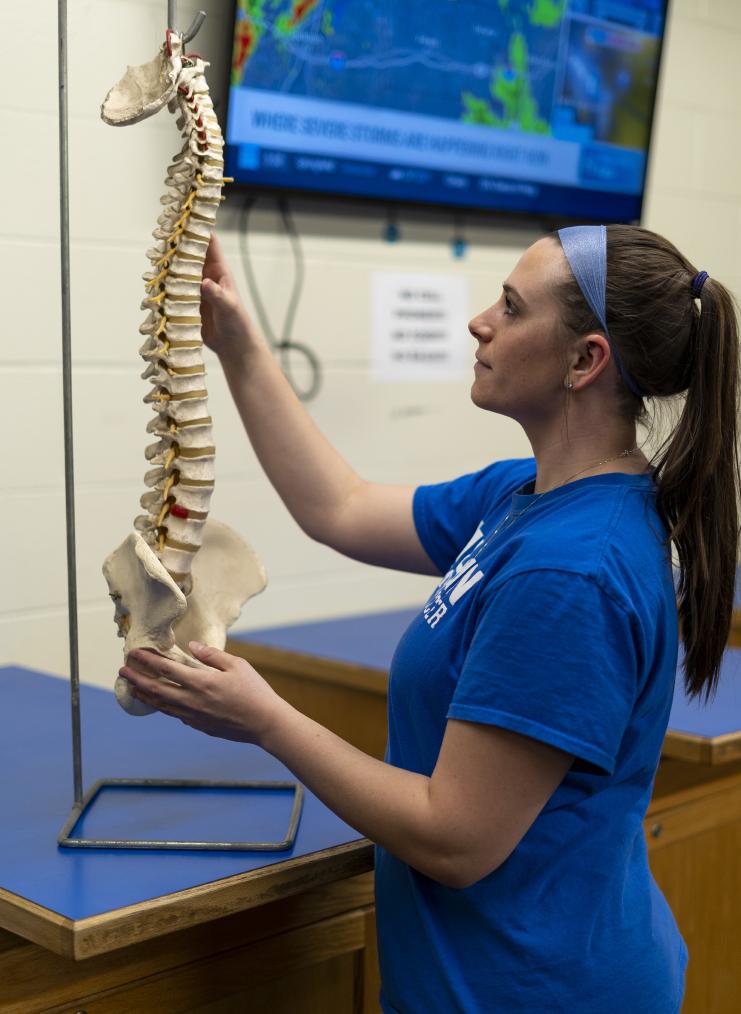
Shae is a junior athletic training/prephysical therapy major from Johnsburg, Illinois, who has played soccer for eighteen years. She loves soccer because of the level of competition, the lifelong friendships, and what she has learned from working as a team and facing diversity.
Question: “When was a time people overestimated or underestimated your strength as a woman? How did that make you feel?”
Answer: “I have been underestimated as a woman many times in my soccer career. When I played soccer with boys at a younger age, the boys would most often not want me on their team because they underestimated my abilities to be a large contribution to the team. This made me feel small, and I felt it was unfair that someone would think less of my capabilities as an athlete
because I am female. I took the many times I have been underestimated and used it to drive myself to always prove to my opponents, teammates, coaches, and myself that I am a capable athlete and have a lot to bring to the table.” participate in whatever she wants, and it doesn’t matter what you look like or your size.”

Emily Elsea, Women’s Golf
Emily is a sophomore vocal music education major from Columbia, Missouri. She has participated in golf since eighth grade, and she appreciates that golf is both a team and individual sport.
Question: “How long did it take you to recover from negative commentary, and what drove you to stay positive?”
Answer: “It took me two years, at least, to realize that it shouldn’t matter what people think of me on or off the golf course. So what if a lot of brands don’t make golf gear in my size because I don’t look like the typical golf girl? What drove me the most is to show every girl she can
Nicole Scott, Retired Women’s Tennis

Nicole is a senior professional writing major. She is from Belleville, Illinois, and has played tennis since she was nine. She likes tennis because it is a sport based on skill, and anyone can play it with adequate training.
Question: “When was a time people overestimated or underestimated your strength as a woman? How did that make you feel?”
Answer: “My strength constantly gets underestimated; however, the most distinct time happened shortly before I entered college. I wanted to play a pick-up game of tennis, so I asked my friend, who happened to be male, if he would play with me. His response was that he didn’t want to play against a woman because he would have to go easy on me. It made me angry.”
Stephanie Oliver,
Women’s Track & Field
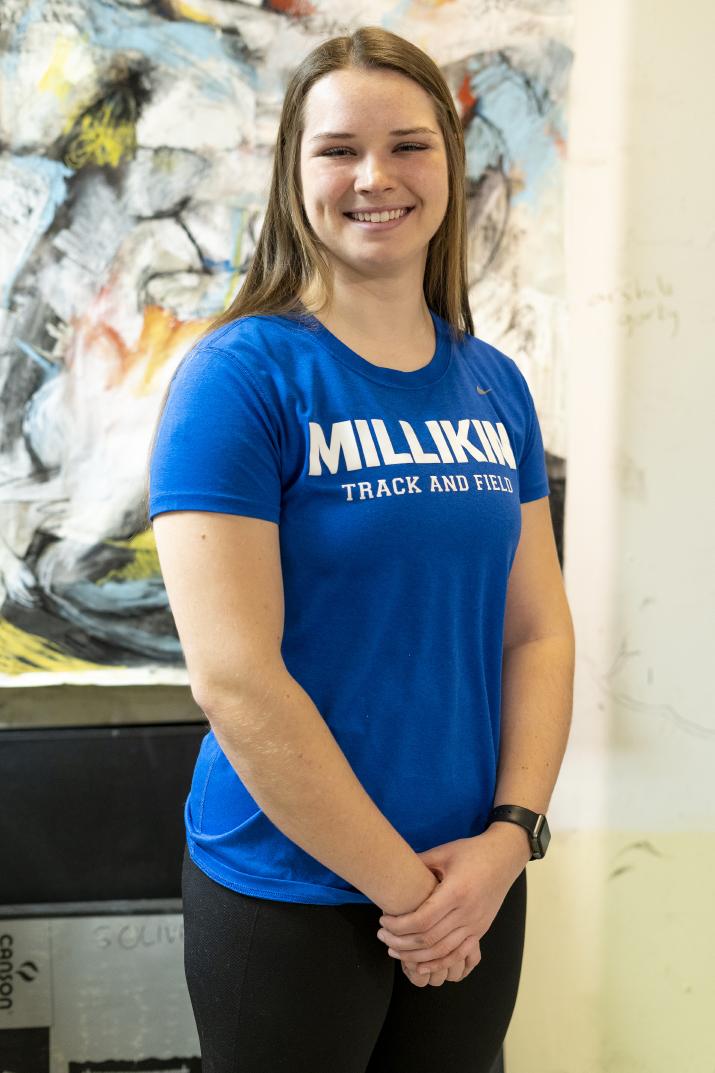
Stephanie is a junior from Cedar
Lake, Indiana, and majors in art therapy. She has participated in track for four and a half years, and she likes track because it gives her an opportunity to release her energy. It also allows her to surround herself with a family that constantly encourages her to do her best.
Question: “How long did it take you to recover from negative commentary, and what drove you to stay positive?”
Answer: “It took about the length of a track meet. It is better to watch your teammates doing well, and they didn’t need to see me sitting along the sidelines. It’s easier for me to bounce back when I see others performing.
Anna Gambol’s Perspective
Unfortunately, ridiculing athletic women has become a common reality. Like the men on their teams, women have worked extremely hard to succeed in their sport, but many who should strive to support them still attempt to destroy their confidence and self-worth. When people hear disparaging comments about themselves, recovering from the offense usually does not happen effortlessly. Rebuke can hurt badly and can leave a mental scar, but the women I interviewed disregarded the statements and did not allow the words they heard to affect them in their sports or everyday lives. They know hurtful remarks will make them stronger women and athletes and that holding onto the contempt they experience does not benefit them. Rather, staying positive helps them realize how strong and capable they are.
Personally, I have experienced my share of harsh words regarding my participation in sports. Because of my 5’11’’ height, everyone thought I should play basketball or volleyball during high school, but I preferred softball and throwing in track and field. Most people within the sports realm do not associate a tall stature with my chosen activities, and I believed no one truly recognized my performance on both teams. I assumed fellow athletes compared me to men who threw shot and discus instead of acknowledging I threw far as a female. Track has served as my primary sport for a long time, and I have concluded over the years that my throwing abilities impressed those around me. I felt self-conscious due to the distance of my throws, but my peers were not actually comparing me to men. I was simply comparing myself. In the stages prior to adulthood, realizing that fact proved difficult. Although some women may find it easier than others, turning destructive perceptions into motivation can benefit athletic women. Society exposes us to a variety of thoughts and opinions daily, and only we can transform harmful views into an advantage. Rising above the insults and stereotypes can, in turn, boost our performance levels and selfassurance not only while we engage in our sports but also in our day-to-day lives.
As a female athlete, I am passionate about disclosing the hardships women endure in athletics. I want to increase awareness of the stigma women face throughout their athletic careers. The coaches and teammates whom athletes see every day may represent the primary source of direct discrimination, but the issue appears frequently across media outlets as well. Female competitors deserve respect for their talent and achievement, and many eliminate negativity from their minds in order to become stronger and happier.
If you know a female athlete, ask her about challenges she overcame in sports and how she managed to persevere. You may learn a great deal about how she persisted and reached the place where she stands today.

